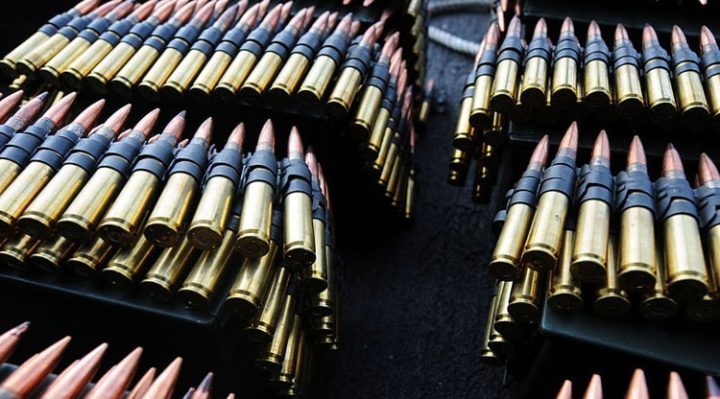The Government presented the annual white paper on exports of defence-related products. In 2018, Norwegian companies exported defence-related products and services worth NOK 5.8 billion. This is a decrease of NOK 6.3 billion compared with 2017.
‘Norway maintains a high level of transparency about defence-related exports, when it comes to access to information both about the exports themselves and about the Ministry’s processing of export licence applications for defence-related products, in line with the Ministry of Foreign Affairs guidelines. The Government considers it important to continue to ensure this level of transparency,’ said Minister of Foreign Affairs Ine Eriksen Søreide.

The overall value of exports of defence-related products was 8 % lower in 2018 than in 2017.
In 2018, the value of exports of arms and ammunition (category A products) amounted to around NOK 3.9 billion, while the value of exports of other types of military equipment (category B products) totalled approximately NOK 870 million. The value of exports of arms, ammunition and other military equipment was 11 % lower in 2018 than in 2017.
In 2018, exports of category A products to other NATO countries, Sweden and Finland accounted for around 78 % of the total export of these products, up from 63 % the previous year. Exports of category B products to these countries accounted for 61 % of the total export of category B products. The United States was the largest single importer of defence-related products from Norway.
The total value of exports of defence-related services, repairs, production rights and brokering services was NOK 517 million in 2018. In addition, licences for the export of dual-use items for military use worth NOK 550 million were granted in 2018.
In 2018, 11 licence applications were denied.
The value of exports of defence-related products fell by around NOK 600 million from 2017 to 2018. There will be a natural variation in the figures for each year, depending on when deliveries take place. The deliveries may be unevenly distributed over the contract period and the export value will therefore vary from year to year.
In preparing the white paper, particular importance has been attached to providing a thorough account of the legislation and of the Ministry’s processing of export licence applications, in line with the Ministry of Foreign Affairs guidelines. The white paper discusses in depth the consolidated list of criteria for defence-related exports in the Foreign Ministry’s guidelines, and emphasises the importance of respect for fundamental human rights and compliance with international humanitarian law. The Government has reviewed the Norwegian export control regime (acts, regulations and guidelines) to make it more accessible for exporters, and through the white paper, is seeking to raise awareness of how the rules are applied and how licence applications are assessed.
‘Norway has extensive and stringent rules in place for exports of defence-related products, and we take a strict precautionary approach. This approach resulted in the Government deciding in December 2017 to suspend licences for the export of arms and ammunition to the United Arab Emirates. As regards Saudi Arabia, Norway is in a completely different situation from many other countries as we have never permitted the export of arms and ammunitions to Saudi Arabia,’ Ms Eriksen Søreide said.
In November 2018, the Government also decided to stop processing new licence applications for the export of other types of military equipment and dual-use items for military use to Saudi Arabia. This decision was based on a risk assessment of the grave and unpredictable situation in the region. Nevertheless, some category B products and dual-use items were exported to Saudi Arabia in 2018. These were exports of photo and video equipment that were made under licences issued before the decision was taken on 9 November 2018.
The white paper also describes the Ministry’s cooperation with other Norwegian authorities. It also discusses the ongoing, extensive international cooperation on export control and non-proliferation. Norway participates actively in this cooperation, and is engaged both in the technical work to draw up lists of conventional defence-related products and dual-use items, and in the efforts to secure agreement on high international standards for control of exports of strategic goods and technology.
‘The fact that, in many areas, the Norwegian defence industry is at the forefront internationally is important both in terms of our defence capabilities and for Norwegian jobs. The Government’s aim is to continue to ensure predictable conditions for defence-related exports within the framework of a clear and restrictive export control regime. We will seek to facilitate Norwegian companies’ participation in international projects, and to ensure that the conditions of competition are as equal as possible for companies in all the countries concerned. A long-term approach is therefore vital, and we must ensure predictability when it comes to export control,’ Ms Eriksen Søreide said.
